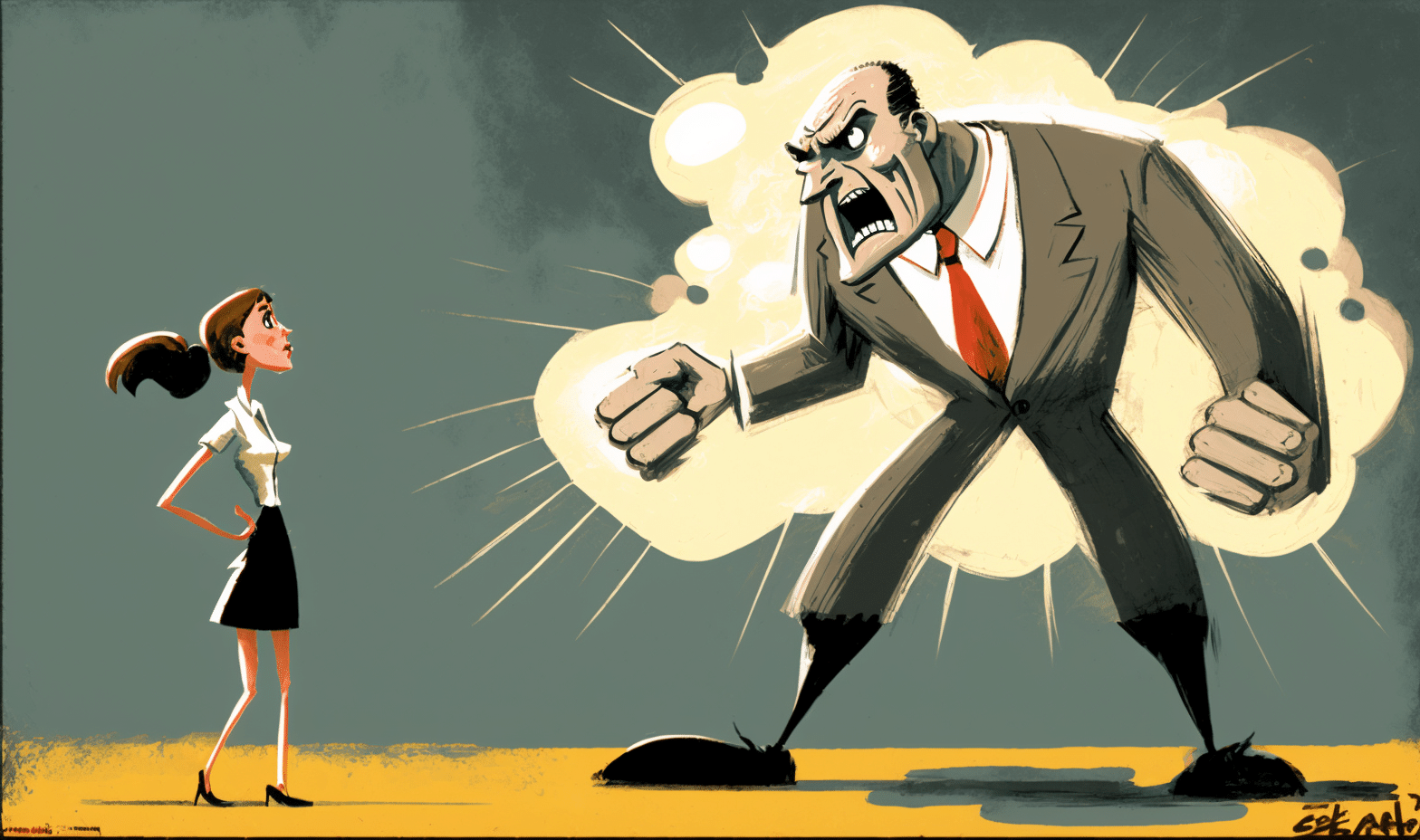Stories of job interviews gone wrong are not uncommon. Candidates often find themselves subjected to rude and hostile behavior from potential employers, leaving them feeling trapped and obligated to stick it out until the end. But why do job seekers put up with such treatment during what should be a two-way assessment?
One candidate recounts flying to another state for a job interview with the Vice President of HR for an automotive parts maker. The candidate was made to wait for hours and was ultimately ignored during the interview as the VP spent most of the time bragging about her accomplishments. The candidate felt tearful and trapped, unable to gracefully end the interview.
In another instance, a candidate was not warned that they would be participating in a group interview with multiple other candidates. The candidate was not given the opportunity to decide if they wanted to participate and ultimately felt rushed and pressured to answer questions differently from the other candidates.
Yet another candidate was made to take a day off work for an interview, only to arrive and find 45 other candidates participating in a group interview. The candidate was not able to leave as they had handed over their ID to the receptionist, who had gone to lunch and left the IDs locked in her office.
So, why don’t more job seekers walk out of bad interviews? The answer lies in the power dynamics inherent in most interviews. Candidates often feel they must endure whatever treatment the interviewer dishes out, no matter how rude, as the interviewer holds something the candidate wants – a paying job. However, job interviews should be a two-way street, with candidates assessing the employer and forming their own judgments about the company and the manager.
Candidates should feel free to cut short an interview if they feel the employer is not the right fit for them. But not everyone has the luxury of doing so, as some may need a job and may be more willing to put up with an abusive manager, or may want to see the terms of a job offer before making a decision.
However, even candidates with in-demand skills and plenty of options may be reluctant to abort terrible interviews. They may feel that it is rude, not their place, or simply not realize that cutting short the interview is an option.
The online advertising sector is no stranger to such toxic and abusive job interviews. In this fast-paced and highly competitive industry, employers can become overly focused on finding the perfect candidate and may resort to manipulative and unethical tactics during the interview process.
It is not uncommon for candidates to be subjected to grueling and prolonged interviews, with no clear indication of the next steps or feedback on their performance. Some employers may even use the interview as an opportunity to test the candidate’s endurance and see how they handle stress and pressure.
Another issue in the online advertising sector is the use of “gotcha” questions or intentionally misleading information during the interview. This can include asking the candidate to perform a task that is impossible to complete or presenting false scenarios to see how the candidate reacts.
Such tactics can be demeaning and demoralizing for the candidate and can also lead to a lack of trust and mutual respect between the candidate and the employer. It can also lead to a negative perception of the company, with candidates sharing their negative experiences with others and potentially affecting the company’s reputation and future hiring efforts.
So, what can job seekers do to protect themselves from toxic and abusive job interviews in the online advertising sector?
Research the company: Before applying for a job, it is important for job seekers to research the company and get a clear understanding of its values, culture, and reputation. This can be done through reading reviews from current and former employees, checking out the company’s social media profiles, and talking to people in your professional network who may have knowledge of the company.
Prepare for the interview: It is essential to prepare well for the interview by understanding the job requirements, the company culture, and the type of interview format. This will help you feel more confident and equipped to handle any difficult or abusive questions during the interview.
Know your rights: It is important for job seekers to know their rights during the interview process. For example, it is illegal for an interviewer to ask questions about your age, race, religion, or sexual orientation. If an interviewer asks such questions, you have the right to decline to answer or to politely bring up your rights.
Be cautious of red flags: During the interview process, be cautious of any red flags that may indicate a toxic or abusive workplace. This can include aggressive or condescending behavior from the interviewer, unrealistic expectations, or a lack of clear communication about the role and responsibilities.
Trust your instincts: Finally, it is important to trust your instincts and not ignore any warning signs. If you feel uncomfortable or that the company culture is not a good fit, it is better to move on and find a more suitable job opportunity. Remember that you are interviewing the company just as much as they are interviewing you, and you have the right to choose a workplace that aligns with your values and expectations.
Ultimately, it’s important to remember that job interviews are a two-way street. Employers are evaluating candidates, but candidates should also be evaluating employers. If you’re in an interview and feel like you’re being treated poorly, it’s okay to speak up for yourself or even to leave the interview early. While it can be scary to do so, remember that you’re interviewing for a job, not for a lifetime commitment. If you feel like the interviewer is not treating you with respect, it’s unlikely that they will treat you better once you’re hired.
There are steps that both employers and job seekers can take to avoid toxic and abusive job interviews. Employers should be transparent about the interview process and what to expect, and they should treat candidates with respect and professionalism. On the other hand, job seekers should do their research and prepare for the interview, and they should be honest about their qualifications and expectations.
The bottom line is that job interviews should be professional, respectful, and equitable. Both employers and job seekers have a responsibility to create a positive interview experience, and it starts with setting clear expectations and treating each other with respect. Whether you’re an employer or a job seeker, it’s important to be mindful of the power dynamics at play and to be aware of the impact that your words and actions can have on the other person. By working together, we can create a better job interview experience for everyone.
Toxic and abusive job interviews are unfortunately all too common in the online advertising sector. However, by taking steps to address this issue, we can create a more positive and equitable interview process for everyone involved. Whether you’re an employer or a job seeker, it’s important to be mindful of your words and actions, and to treat each other with respect and professionalism. With a little effort and awareness, we can create a job interview process that is both fair and effective, and that helps everyone reach their goals.











